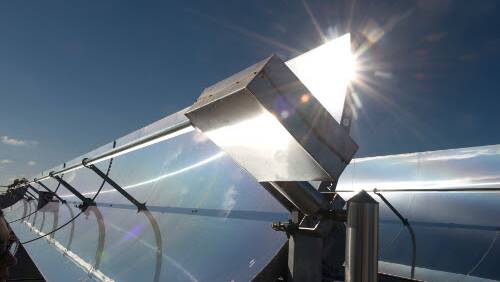
Local renewable energy experts believe the state government’s planned change for the feed-in tariff scheme for solar households will not have an adverse impact on the growing industry.
Subscribe now for unlimited access.
$0/
(min cost $0)
or signup to continue reading
Earlier this week, Energy, Environment and Climate Change Minister Lily D’Ambrosio confirmed that the current scheme would change from July 1, meaning the amount households receive will depend on the size of their unit, the particular tariff they are on and the rates that are set by the Essential Services Commission.
The feed-in tariff is the minimum price per kilowatt hour that electricity retailers must pay customers (who are small renewable energy generators) for electricity they produce and feed back into the grid.
In some circumstances households which receive the minimum feed-in tariff rate (5 cents per kilowatt-hour) will experience minor increases.
However, in other circumstances, houses which currently receive 25 cents per kilowatt hour for electricity they export could significant massive cuts.
Regardless, Ballarat Renewable Energy and Zero Emissions (BREAZE) managing director Simon Reid said over time, the tariffs will become less important.
"The next stage of the solar revolution will see feed-in tariffs become less important as the widespread addition of batteries to solar power systems allows householders to store the sun's energy for use in the evening and overnight,” he said.
“Currently, take up of batteries is far slower than it could be due to prohibitive upfront costs. So I urge governments to create incentives to reduce those upfront costs and thereby promote sustainability, financial benefits to householders and stimulate growth of local jobs in the solar industry.”
Meanwhile, Greens leader Greg Barber condemned the change, believing it will make the solar industry less inviting for prospective future solar users and generators.
"This is a total rip-off. (Around) 80,000 home and businesses will see hundreds of dollars added to their bills,” he said.
“Power companies will love it. They will take your excess solar power for six cents and sell it to your neighbour for 25 cents.”
Ms D’Ambrosio defended the impending changes, describing them as “fairer”.
“Victorians should be fairly compensated for the power they generate – plain and simple,” she said.


